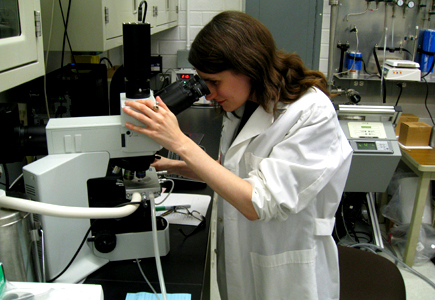(I will give you a hint. It’s in the name.)
Scientists!
This post is intended as a response to an interesting discussion on LinkedIn started by analytics manager at Ford, Michael Cavaretta. https://www.linkedin.com/posts/michael-cavaretta-ph-d-795a965_indus…. He asked what hires make the best data scientists.
In my real-world experience in the data science field, I find that physicists make the best data scientists. Why? Because physicists work at the intersection of math and reality. They have been trained to hypothesize ideas about how things work, and then to design experiments to test these hypothesizes, gather the data, interpret it, and communicate the results. This is mainly what we are asking data scientists to do. (I do not believe model building is the sole role of data scientists, but that’s for another post.) Physicists can also work independently and can learn new techniques on their own.
While I specifically call out physicists from my experience, all physical scientists, chemists, astrophysicists, and even (sometimes) biologists should have the same skill sets and expertise. Physical scientists perform the best when you have a lot of data and you do not know what to do with it. They are good with uncertainty and can propose hypotheses to move analyses forward when working in a vacuum.
This doesn’t mean you cannot hire individuals with different educational backgrounds. Here are some cases when it would be a good idea to hire:
- Social Scientists – When investigating human behavior. Social scientists have experience with different tool sets than physical scientists, but the process is the same and statistics is still statistics. I find individuals with these backgrounds excel at survey analysis, behavioral analysis, and marketing applications.
- Engineers – While engineers study a lot of physics and math and are quite competent in both fields, engineers are trained to apply discoveries in pure science disciplines in the real world. They work with certainty and well-defined systems, or very bad things could happen (Think of engineering a bridge… how do you want that engineer to think about it? Would you want them to try some things and see what works? No.). For this reason, engineers tend to struggle with the “unknown” involved in a lot of data science work. However, engineers working as data scientists can still excel, especially in industrial applications and operations research work, where conditions are controlled and systems well defined.
- Computer Scientists – Computer scientists work at the interface of the computer & the real world and are great for developing applications & data structures that surround data scientists. The also tend to be very good at optimizing data science algorithms and deploying them optimally. However, they tend to struggle with what is actually inside the data and what that data means. They make good data engineers, architects and developers of ML consuming applications, and ML model deployers and optimizers, but not necessarily good data analysts.
- Anyone with a questioning attitude and critical thinking skills – I am not trying to be a naysayer and tell people they cannot be a data scientist. I believe almost anyone can become a great data scientist. The fundamental characteristics are a questioning attitude, critical thinking skills, and a constant curiosity to learn.
What background do you think makes for the best data scientist? Let me know in the comments below.

